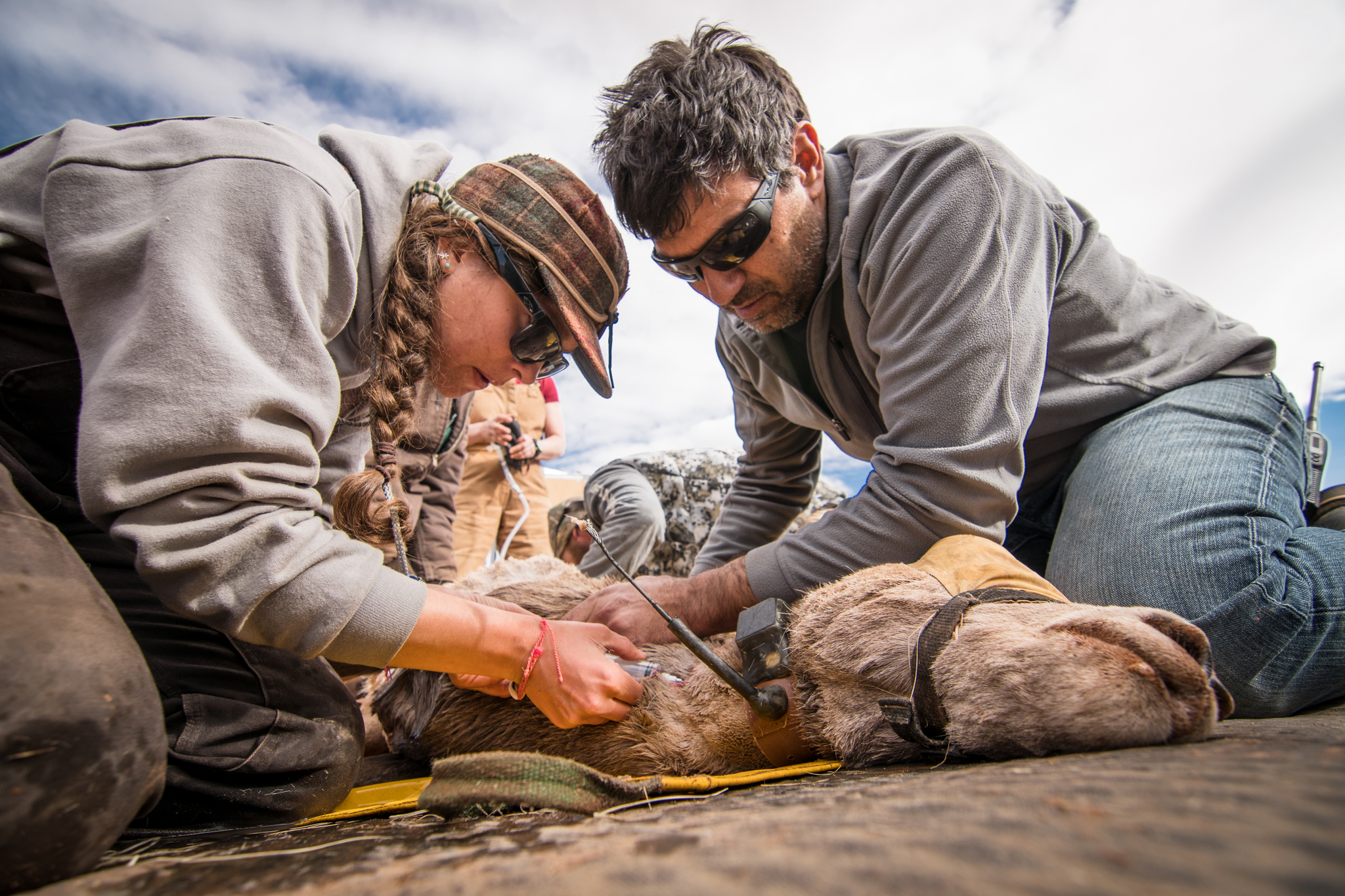News Release

Benjamin Kraushaar (all rights reserved, used with permission)
|
Subscribe
|
Contact: Christy Flemming, 3075485406
Lovell, WY: On February 20, at 6:30 PM, Matthew Kauffman, a University of Wyoming professor and wildlife researcher with the U.S. Geological Survey, will be the second of three speakers in the Earth Day Speaker Series.
The American West harbors vast landscapes still capable of supporting long-distance ungulate migrations. Herds of big game migrate up to 150 miles one-way across rugged landscapes which are important seasonal habitats. Such movements present a conservation challenge because they require animals to cross multiple-use lands, some of which are changing rapidly. As a result, ungulate migration is difficult to manage and conserve. However, recent research on ungulate migrations has enhanced the understanding of the benefits of migration and the threats faced. In particular, detailed movement analyses indicate that mule deer migrate along with spring green-up, a phenomenon referred to as "surfing the green wave". New research is also emerging that helps us to understand the importance of this “surfing”, how beneficial it is to migrating ungulates, and the factors that influence how well animals are able to surf. Matt Kauffman will discuss this research within the context of the Red Desert to Hoback migration - the world's longest mule deer migration. He will describe how new research, new conservation tools, and new ways of communicating science are bringing people, agencies, and NGOs together to make such journeys easier for migrating ungulates. The scientific developments will be framed within the context of the importance of public and private land management for the maintenance of big game migration corridors.
The last speaker in this three part series will be Douglas Smith, Senior Wildlife Biologist at Yellowstone National Park. He will speak on March 19 at 6:30 PM, discussing the importance of public land to wolves, elk, birds, and other wildlife in the Greater Yellowstone Ecosystem.
The Earth Day celebration will conclude on April 9 with a panel discussion facilitated by David Peck, Editor of the Lovell Chronicle. He will be asking the expert panelists up to ten questions to inspire conversations about the importance of public lands.
Panelists:
John Clayton, a Montana-based nonfiction writer, independent journalist, essayist, historian, and business ghostwriter. John’s books include Natural Rivals, about John Muir and Gifford Pinchot, Wonderlandscape, about Yellowstone National Park, plus The Cowboy Girl, Stories from Montana’s Enduring Frontier, and others.
Jeremy Johnston, Buffalo Bill Center of the West, whose Ph.D. dissertation considered Buffalo Bill’s and Theodore Roosevelt’s thoughts and actions in developing the Big Horn Basin, as well as their efforts to preserve sections of the Yellowstone region.
Shane Doyle, an enrolled member of the Crow Tribe from Crow Agency, Montana, who holds a Master’s degree in Native American Studies from Montana State University, a Doctorate in Curriculum and Instruction, and held a post-doctoral appointment in genetics with the University of Copenhagen, Denmark, in 2016.
Holly Sandbo, Northern Rockies Outreach and Engagement Manager for the National Parks Conservation Association. Holly has a degree in Natural Resource Management and a Master’s in Education. Prior to her work as a public lands advocate, Holly spent many years in outdoor and science education.
In partnership with the Powell Valley Community Education (PVCE) and through a grant from the Wyoming Humanities Council, a bus will be available to bring participants from Powell for the February, March and April programs. The bus will leave from the Yellowstone Building parking lot at 5:45 PM the evening of the programs. If you are interested in riding the bus, please contact Leslie Bigham at 307-754-6469 to reserve your seat.
PVCE and Bighorn Canyon would like to thank the Wyoming Humanities Council for their support of this program.
For additional information about this program go to the PVCE website at https://nwc.edu/pvce/ or contact Christy Fleming, Chief of Interpretation at Bighorn Canyon, at 307-548-5402.
Last updated: April 24, 2025
